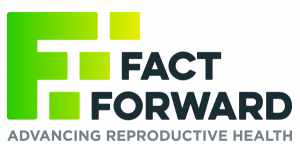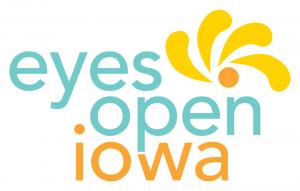In this training, participants will improve their skills in talking with adolescents about delicate topics and answering sensitive questions. By becoming an Askable Adult, participants will gain essential tools to support teens in making healthy decisions about relationships, love, and sex.
Training Hub
The Sex Education Collaborative Training Hub lists trainings for sex educators, facilitators, and other professionals on best practices for sharing important information with clients and the public. From teaching anatomy inclusively to effectively addressing bias in the classroom to addressing racial justice and equity in sex education, the Training Hub includes trainings, technical assistance, and policy support from state, regional, and national leaders in the field of sex education.
Please note: The Training Hub includes both in-person and online professional trainings. If you see a training you are interested in and it isn’t listed as virtual, please reach out directly to any of our members to find out what's possible!
Trainings Offered by State-Based and National Organizations
Displaying results 51 - 55 of 130Askable Adult: Talking to Teens About Tough Topics
- Indicator 1 (K-12): Demonstrate three techniques to create an inclusive and affirming learning environment. (S)
- Indicator 1 (K-12): Describe three distinguishing characteristics between healthy and unhealthy relationships, involving family, friends, and/or romantic partners.
- Indicator 2 (K-12): Explain three ways that healthy relationships can positively impact personal well-being.
- Indicator 2 (K-12): Demonstrate the ability to effectively respond to three different types of challenging questions. (S)
- Indicator 1 (K-12): Explain the differences between personal and universal values relating to sexuality.
- Indicator 2 (K-12): Describe how verbal and nonverbal expression of personal values, and comfort with topics related to sex education, could impact one’s teaching
Sexual Anatomy and Response: Getting Under Your Skin
Sexual Anatomy and Response: Getting Under Your Skin helps middle and high school health professionals teach young people how their bodies work, so that students have the foundation to learn about other sexuality-related topics, like pregnancy and STD prevention.
Format/platform:
- Online Learning Management System (Canvas e-learning), hosted by Rutgers University
- Six-hours of total contact time utilizing videos, podcasts, instructional games, discussion boards, written assignments, presentations, readings, and visual animations
- Asynchronous
- Instructor-led
All content is aligned to the National Sexuality Education Standards, the National Teacher Preparation Standards for Sexuality Education, the Professional Learning Standards for Sex Education, and the Areas of Responsibility and Competencies for Health Education Specialists.
- Indicator 2 (K-12): Demonstrate three student-centered instructional approaches that support a variety of learning styles. (S)
- Indicator 2 (K-12): Demonstrate the ability to use medically accurate terms for sexual and reproductive anatomy, including all external genitals. (S)
- Indicator 3 (K-12): Explain the function of the individual sexual and reproductive body parts and how they typically work.
At EyesOpenIowa, we specialize in helping educators, schools, and organizations deliver accurate, inclusive, and policy-aligned sexual health education. With decades of experience, our dedicated training and leadership teams work closely with you to develop a customized plan that meets your specific needs. Here's how we can support you:
Curriculum Alignment to Policies and Standards We ensure your curriculum is fully aligned with state and federal policies, as well as the latest educational standards, so your program is compliant and impactful.
Curriculum Development We collaborate with you to create a robust, tailored curriculum that incorporates the latest research and best practices, ensuring it is both effective and engaging.
Curriculum Review for Cultural and LGBTQ Inclusivity Our team assesses your content for cultural relevance and LGBTQ inclusivity, providing recommendations that foster an environment of respect and understanding for all students.
Curriculum Review for Medical Accuracy We verify the medical accuracy of your curriculum, ensuring all health-related content is up-to-date and evidence-based, promoting healthy decision-making.
Scope and Sequence Development and Review We help you develop or refine your scope and sequence to ensure learning objectives are met in a logical, structured manner, maximizing educational impact.
Partner with EyesOpenIowa to elevate your curriculum with customized, expert support, ensuring it is comprehensive, inclusive, and meets the highest standards of educational excellence.
Virtual PD - Creating LBGQ Inclusive Classrooms
Virtual Professional Development is a simulated classroom where teachers can practice teaching student avatars using short scenarios and support from an instructional coach, so they can quickly learn and master the skills they most need to be effective. With upper elementary, middle and high school classrooms, Virtual PD has scenarios for teachers of all grade levels across a wide range of topics aligned with the Professional Learning Standards for Sex Education (PLSSE). You can watch the video here to learn more about Virtual PD.
Using the Virtual Professional Development simulated classroom, the educator will practice Creating LGBQ Inclusive Classrooms with the student avatars. In this VPD scenario, the participant will need to demonstrate the use of inclusive and affirming language and the ability to intervene effectively in homophobic and other bullying comments and actions. The educator will introduce the topic of STDs and ask each student to share one behavior they have heard that can place someone at risk for getting an STD. This scenario can be used with high school or middle school students.
- Indicator 4 (K-12): Demonstrate the use of inclusive and affirming language. (S)
- Indicator 5 (K-12): Demonstrate the ability to intervene effectively in homophobic and other bullying comments and actions. (S)
Virtual PD - Managing Students' Values When Teaching Sex Ed
Virtual Professional Development is a simulated classroom where teachers can practice teaching student avatars using short scenarios and support from an instructional coach, so they can quickly learn and master the skills they most need to be effective. With upper elementary, middle and high school classrooms, Virtual PD has scenarios for teachers of all grade levels across a wide range of topics aligned with the Professional Learning Standards for Sex Education (PLSSE). You can watch the video here (link is external) to learn more about Virtual PD.
Using the Virtual Professional Development simulated classroom, the educator will practice Managing Students' Values When Teaching Sex Ed with the student avatars. In this VPD scenario, the participant will conduct a values continuum activity with an established classroom community. In this simulation with the five students, the educator will ask students to respond to the statement: “It’s OK for students our age to have sex, as long as they use protection.” The participant will need to demonstrate the ability to respond to students’ conversations and questions regarding personal values when teaching about sexuality.
- Indicator 4 (K-12): Demonstrate the ability to respond effectively to students’ values-based comments and questions. (S)
Additional Trainings offered by out-of-state organizations
- ‹ previous
- 4 of 42
- next ›
How to Choose a Curriculum
There are many options for sex education curricula; it can be overwhelming. Participants will discuss district wants and needs and various curriculum options to decide which curriculum is a good fit.
- Indicator 2 (K-12): Describe state and/or district laws, policies, and standards that relate to sex education where one teaches.




